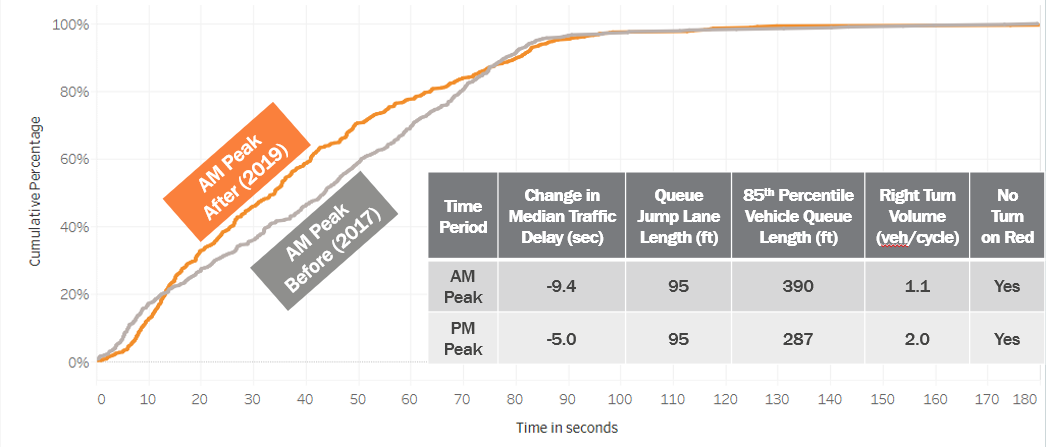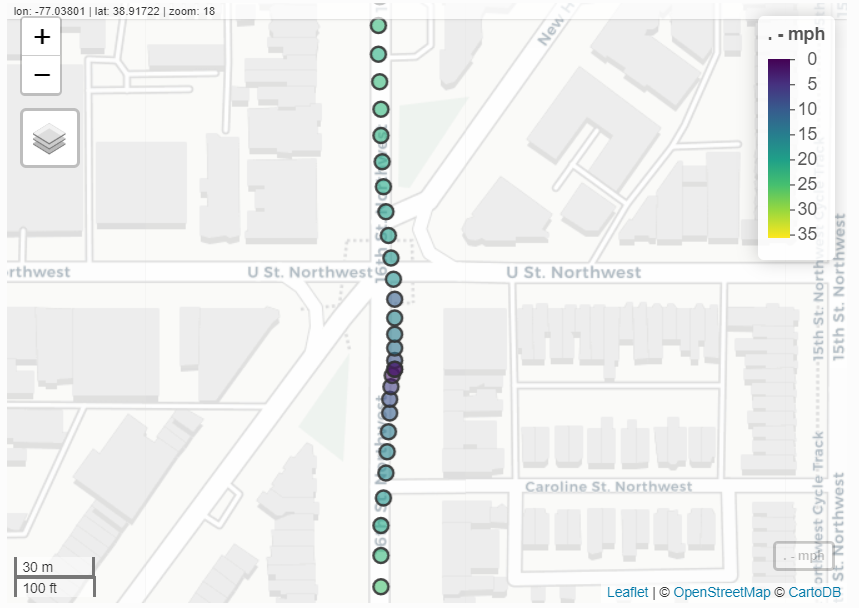This project sought to evaluate queue jump performance in Washington, DC using WMATA’s fine-grained AVL data known as “rawnav”. Foursquare ITP explored this data and its capabilities, helped develop a methodology to make use of this data for the queue jump evaluation and other planning analyses.
We conducted field observations to help validate the data and created a replicable process to decompose runtimes in the data into different sources of potential delay. In doing so, we also created a package in Python to be used by WMATA staff for future analysis of this data.
Overall, the runtime decomposition was used to isolate factors directly applicable to the queue jumps and then conduct a before and after analysis to measure their performance. Metro used this work to significantly reduce delays and enhance bus performance, giving them a position to seamlessly merge into traffic flow.


Solutions and Outcomes
- Performed a detailed data analysis to evaluate WMATA’s queue jump performance.
- Our Data Science Team created a Python package for WMATA staff to use for future analysis of this data.